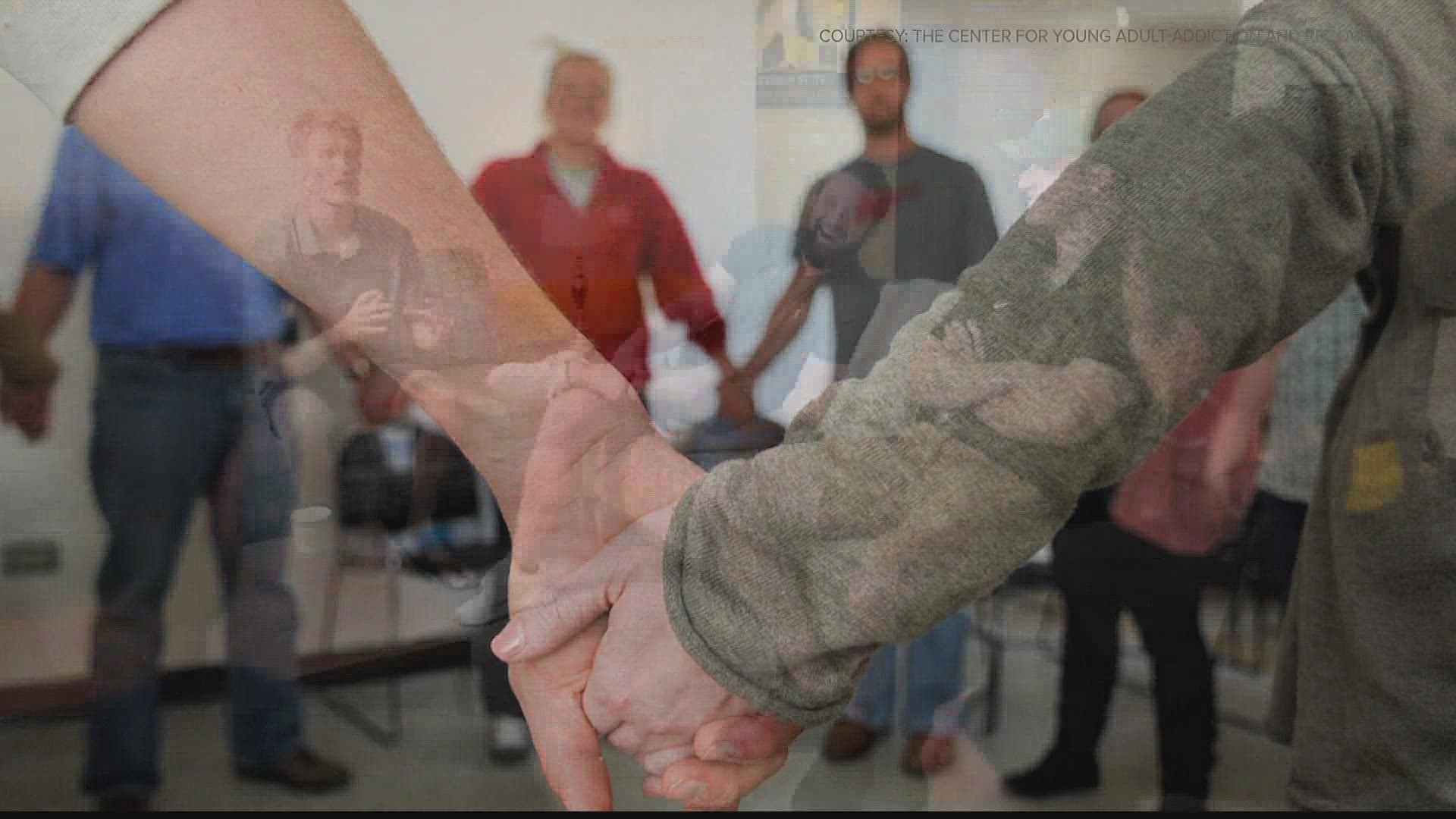KENNESAW, Ga. — For the past 15 years, Kennesaw State’s Center for Young Adult Addiction and Recovery (CYAAR) has been providing students who have a history of substance use disorders with a recovery-friendly community that fosters education and well-being.
Through multiple resource programs and events - including counseling and case management; recommendations for treatment; and alcohol and drug workshops - CYAAR is actively working to engage, inform and educate KSU students about treatment plans. It also lays the foundation for recovery.
One of the Center's most well-known programs is the Collegiate Recovery Program (CRP) where students can receive various resources and support that allow them to thrive in school while also going through their recovery journey.
“I think one of the biggest parts of why anyone goes to college is to find their purpose and their passion,” the director of CYAAR, Blake Schneider, said. “When a student gets plugged in here, I think they're able to find their voice within recovery, as well as the academics.”
According to the American Addiction Centers, about 9% of college students meet the criteria for an alcohol use disorder, and the number of people aged 19-28 using illicit drugs increased from 32% in 2006 to 44% in 2019.
At KSU, the CRP uses a "social-support model and theory" where students attend weekly seminars and community meetings that focus on different topics of health and wellness. In these meetings, Schneider said students can create a “safe space” filled with “peer-to-peer support” where they can be open about their experiences with balancing treatment and school.
He emphasized that the CRP does not just provide resources to those with substance use disorders. They also cater to those experiencing things like eating disorders and process addiction behaviors, like gambling and self-harm.
And although anybody can receive recovery services through CYAAR, to get into the CRP, there is an application process. Students must apply before the beginning of the semester and have a minimum of six months of complete abstinence.
Studies have proven CRPs to be a success across the country. According to the American Addiction Centers, one study looked at the relapse rates of 29 nationwide CRPs and found those relapse rates were between 0 and 25%, with academic achievement (measured by GPA and graduation rates) higher than the overall outcomes of the host school.
Schneider said KSU is also seeing this success.
“Last fall, students had an average GPA of 3.25,” he explained. “Last academic year, (the program) had 18 graduates, 11 of which graduated with honors. So not only are our students coming through and finding their space and place within the university, but they're oftentimes excelling and going above and beyond what you would see in an average college student.”
For those not in the program, CYAAR also offers educational resources to students looking to learn more about general health and wellness. It conducts multiple campus events and workshops throughout the year that focus on the mental, physical and emotional health of students. Some of the themes touch on body positivity, stress relief and harm reduction. It even provides ally training where students and faculty who are interested in advocating for those seeking recovery learn effective ways to become a support system.
In addition, one of the most unique workshops CYAAR offers is its naloxone training. Here, students and faculty alike can sign up to learn how to identify and assist in cases of a possible opioid overdose. After completing the workshop, participants can then receive their own naloxone kit.
With one-in-five people battling addiction and not knowing where to turn for help, Schneider said resources like CYAAR are crucial to fighting the nationwide increase in drug overdoses - especially among young adults.
Schneider encouraged any student struggling with addiction or other issues to contact their school counselor and see what resources are available, because he believes it’s never too late to reach out.
“There is no shame or no guilt in reaching out and asking for help," he said. "I think a lot of times we think that if we ask for help, we’re weak, but in reality, if we ask for help, we're strong."

